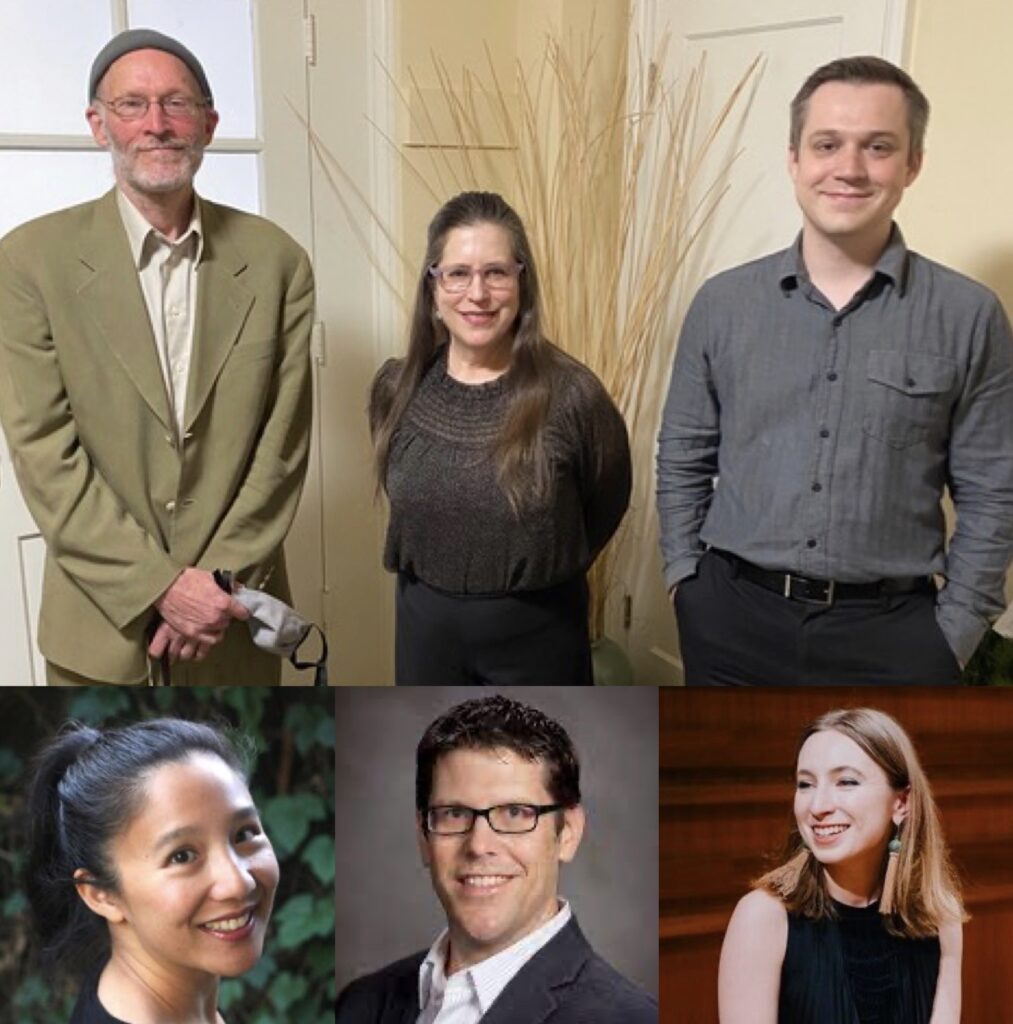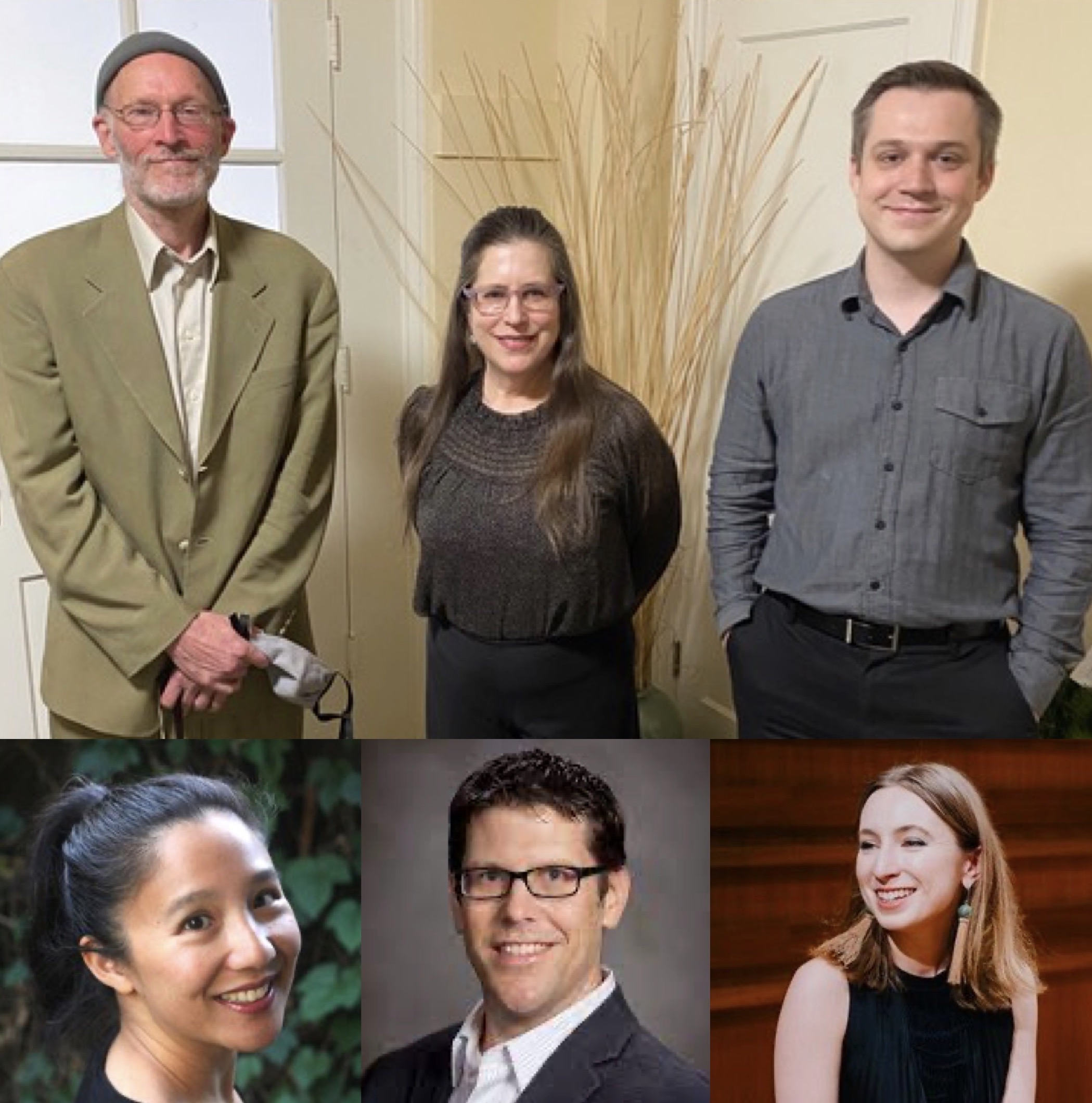Here is a review of a concert that Harmonia Felice Performed as part of the Barefoot Chamber Concert Series:
May 21, 2023

A Rameau Rarity Performed by Harmonia Felice
Jean-Philippe Rameau (1683-1764) is best known for the operas and opera-ballets he composed at Versailles for the court of Louis XIV. One of these latter is the rarely heard Les Surprises de l’Amour, first performed at Versailles 1748. Recently, as part of the Barefoot Chamber Concerts, an affiliate of the San Francisco Early Music Society, excerpts from Rameau’s Les Surprises de l’Amour were performed in a transcription by 18th century composer Ludwig Christian Hesse, who scaled down this work to present it in a small chamber music ensemble. Bay Area musicians formed a group called Harmonia Felice consisting of viola da gambists Amy Brodo and Roy Wheldon, theorbist Jon Mendle, and harpischordist Caitlyn Koester, and these instrumentalists were joined by singers Caroline Jou Armitage, soprano, and Brian Thorsett, tenor. The concert was in the Parish Hall of Berkeley’s Saint Mary Magdalene Church on Friday, May 19 at 6:30 pm.
Rameau’s Les Surprises de l’Amour in its original form was in two acts, the first being L’Enlèvement d’Adonis, and the second being La Lyre Enchantée. For this Berkeley concert, Harmonia Felice performed the Ouverture from L’Enlèvement d’Adonis followed by the complete La Lyre Enchantée, including the charming dance movements composed for this opera-ballet by Rameau. Dance, of course, was an integral part of music at the court of Louis XIV, who himself often danced the principal role in works composed by Jean-Baptiste Lully, Jean-Philippe Rameau or other French Baroque composers.
The plot of Rameau’s La Lyre Enchantée involves the love of Parthenope for Linus, a humble shepherd, and his apparent indifference to her charms and her love. Instead, Linus loves Urania who discovers the enchanted lyre and can’t resist plucking it, then immediately sings the praises of love. Apollo is astonished at the beauty of the dance steps performed by both Urania and Terpsichory and presents each of them a crown of laurels. Instrumental dances ensue, a Loure, a Tamborin, and a Chaconne. The vocal roles were brilliantly sung by soprano Caroline Jou Armitage and tenor Brian Thorsett, who also performed on tambourines. Caroline Jou Armitage has a pitch perfect voice of amazing clarity, and she sang with great intensity and commitment to her roles, whether the sweet Parthenope, the beguiled Urania, or the gender-bending role of Apollo. Tenor Brian Thorsett was a robust Linus, a character who at first fears the excesses of love but soon gives in to the charms of Parthenope. The instrumental ensemble featured superb performances by Amy Brodo and Roy Wheldon on violas da gamba, and fine continuo accompaniment by harpsichordist Caitlyn Koester and theorbist Jon Mendle. Kudos are due to Barefoot Chamber Concerts for presenting this delightful rarity by Jean-Philippe Rameau in a chamber music transcription by Ludwig Christian Hesse.
New Date and Place!
Friday May 19th at Saint Mary Magdalen Parish Hall (This concert had to be postponed from its original December 2 date)at 6.30 pm
With Caroline Jou Armitage, soprano, (Parthenope, a siren and Uranie, a muse); Brian Thorsett, tenor, (Linus and Apollo)
Harmonia Felice: Amy Brodo and Roy Whelden, violas da gamba; Jon Mendle, tiorba; Caitlyn Koester, harpsichord:
La Lyre Enchantée with the Overture from L’Enlévement d’Adonis
by Jean-Philippe Rameau
Transcription for Two Violas da Gamba by Ludwig Christian Hesse




Leave A Comment